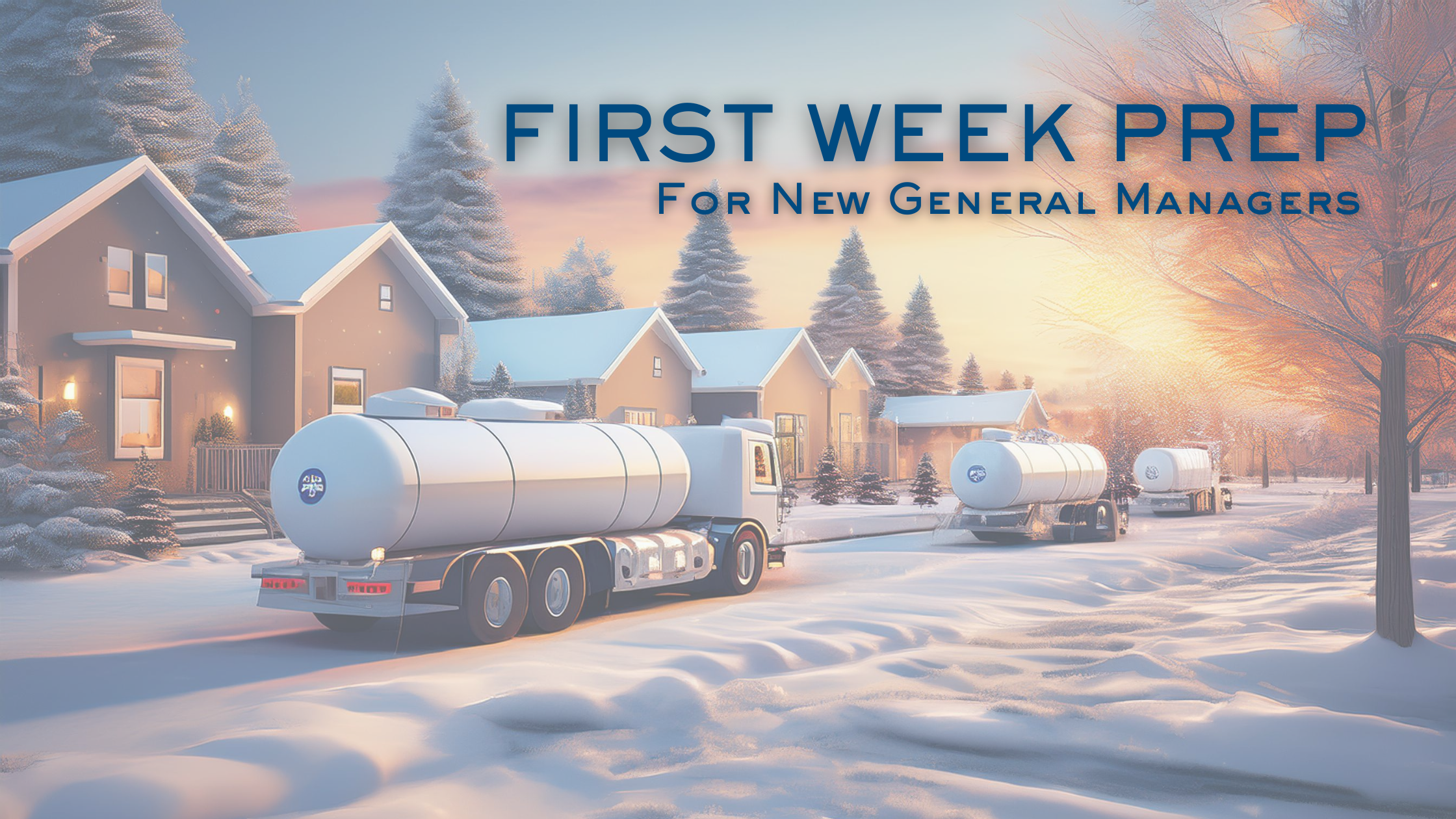First Week on The Job?
Here’s What a General Manager Needs to Check Before the First Cold Snap
Starting a new role as General Manager can be daunting, especially when winter’s just around the corner. Northeast winters are unforgiving and as the temperatures drop, energy demands spike. It’s your job to make sure your company’s procedures are airtight, assets are winter-ready, and all documentation is up to regulatory standards. We’ve compiled the outline below to help walk you through the most critical things you need to check before that first cold snap hits.
Are the Company’s Procedures Ready for Winter?
Let’s be real: diving headfirst into a new company’s processes can feel overwhelming. But before winter hits, there’s no time to sit back. Start by reviewing current procedures to see if they’re up to current standards. Are they where you want them to be? Do they need updates? One thing’s for sure, company safety for all parts of the business must come first.
- Regulatory Compliance Procedures Check
1. Run a report: Check all completed gas checks. If no report is available, grab some customer files and manually review the paperwork. Look for the following:
a. Does each leak test show a beginning and ending reading? How long was it held? Do they comply with current safety standards?
b. Is the lock up within range for the appliances being used on the system? Is the line sizing proper based on the lock up and flow test?
c. Have the valves and fittings on the tanks undergone soap and sniff testing?
Completing this review allows you to ascertain if your service techs/installers are properly documenting their work. Detailed documentation is essential if there’s ever an incident that lands in court – especially if a customer makes changes without informing the company.
- Customer Profiles and Documentation
1. Company-owned tanks: Is there a signed lease on file? Has the gas check paperwork been signed?
2. Customer-owned tanks: Are the proper sales receipts in the customer’s file? If the company doesn’t require this documentation, be cautious – relying on a customer’s word can be risky, especially regarding tank tampering laws.
- Fixed Assets: Are They Winter-Ready?
1. Existing tanks
a. Have they been painted and branded with the company logo?
b. Are they set and ready to be loaded for the next address?
2. New tanks
a. Have all the tanks been purged and methanol added? Most tanks are sent with negative pressure, so the addition of methanol and propane vapor is all that’s needed. In some cases, the tanks are pre-purged so all they need is liquid propane added to no more than 5% of the tank capacity.
- Rolling Assets: Don’t Get Caught Off-Guard
1. Your fleet: Have trucks that sat in the yard all summer been properly serviced? Were they rotated throughout the summer months, so they are ready to go?
2. V&K and meter testing: Have these tests been completed? Has all required documentation been added to the truck file? Is the stenciling on each truck up to date? Is the necessary DOT and/or Weights & Measures documentation in each truck?
3. Insurance and safety equipment: Have all trucks been properly insured? Has all insurance paperwork and truck documentation been placed in each truck? Are the truck plates/tags up to date? Have all trucks been outfitted with the necessary safety equipment in the event of a roadside breakdown?
- Training and Personnel Certifications
1. Certifications and New Technology
a. Have all your drivers, techs, and tank installers been properly trained? Are they up to speed on new technology?
b. Have your audits revealed gaps in proper documentation of gas checks?
c. Are there any new processes that need to be reviewed?
Final Thoughts: Prioritize and Plan for the Season Ahead
In your first week, take the time to review these critical areas and create a list of priorities. Whether its updating procedures, ensuring customer profiles are complete, or prepping trucks for the road, winter preparation is no joke.
You’ve got a lot on your plate, but by systematically addressing these areas, you can rest easy knowing your team, equipment, and documentation are ready for the challenges ahead. When the first cold snap hits, you’ll be prepared for whatever comes your way.
 Written by David Montgomery
Written by David Montgomery
Customer Relationship Manager, Angus Monitoring Service
David Montgomery has over 25 years of experience within the Propane and Petroleum industries. Most of his career has been in operations management. Prior to joining Angus Energy, David worked in a variety of companies ranging in scope and size from multi state marketers to small start-ups, generating expertise in budgeting, operational leadership, asset management, advanced purchasing processes, safety & compliance, acquisitions, due diligence and transitions. David’s main focus at Angus Energy is consulting with clients to identify ways to help them successfully deploy the Gremlin Tank Monitors® while achieving their operational and delivery goals.
Want to be notified about new articles, blog posts, and/or upcoming events?
Sign up to receive our Featured Content email messages.

